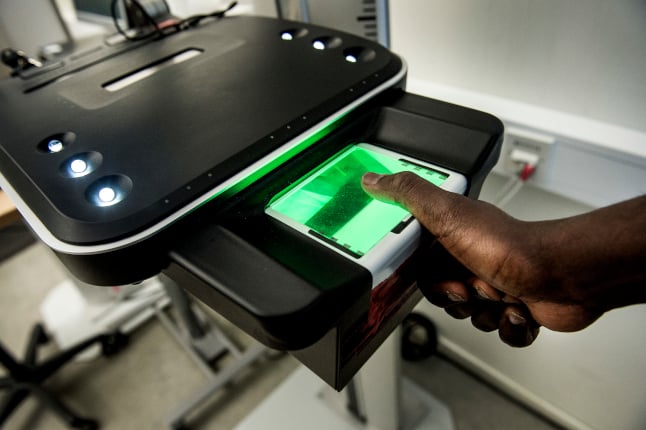Wasfi, a compliance officer at Sweden's state-owned electricity company Vattenfall, has finally had a break-through. Originally from Iraq, he has been granted a temporary residence permit for three years. But it's hard for him to celebrate or cast aside any doubts over his future here. For Wasfi has been involved in a slow, deeply complicated, at times inexplicable process with the Swedish Migration Agency for over six years of his life.
The road to a temporary residence has been filled with bumps the size of rocks. At the time of being offered his job at Vattenfall in 2017, Wasfi was living with his Swedish girlfriend in Linköping and had racked up an astonishing batch of over 800 turned-down job applications. He could not secure a single interview, despite finishing a Master's degree – thanks to an academic scholarship – because of his limbo residency status.
Still ambitious, he asked his case officer if moving to Stockholm for work purposes would affect his residency application? The answer was reassuring: No, as long as he and his girlfriend could still produce evidence of being in a serious relationship, providing authorities with personal pictures, train tickets and the like.
Wasfi, elated, accepted the job at Vattenfall. But soon enough the bad advice caught up with him. After one and a half year's wait, forbidden to travel outside the country (something that he would ideally need to do for his position) or a national identity number, Wasfi and his partner were interviewed for the romantically titled “relationship validation”. They were able to present 89 train tickets covering a period of 16 months, where they had commuted to each other almost every weekend, as well as countless pictures taken at different events and family occasions.

File photo of a person holding a train ticket, not linked to the article. Photo: Bertil Ericson/TT
After the interview, Wasfi's new case officer exclaimed that he had no doubt the couple was in a real, serious relationship: “However, your previous case officer should not have given you the advice that it's okay to change your address to Stockholm and commute back and forth to your girlfriend.” He concluded, on an absurd note: “Therefore, I will most likely reject you, but meanwhile, you should also apply for a work permit.”
In January 2018, this work permit application was rejected. The Migration Agency informed him that the application time from outside the EU would be at least one year – and unsurprisingly, Wasfi would have lost his job if he was suddenly to go abroad and stay outside the EU for a full year.
In a recent letter to the Migration Agency, Wasfi appealed to the humanity of the Swedish state:
“I pay my income taxes but in return, I have no coverage from the state; I have been fully supporting myself with no benefits from the government.
“Having any membership (BankID, driver's licence, Swish, housing queues, library card, even gym, and union) is a hurdle, a bank account, a loan, a job have all been close to impossible, integrating into society by taking SFI (Swedish for Immigrants) is out of the question, stopped by the police when driving means a 20-40 minute discussion and investigation. Having this ‘legal state' for this long is shaping me to always have my guard up to be defensive and for many long nights feeling loved by people but hated, unwanted, and rejected by the system.”
Wasfi also discloses that his relationship finally crumbled under the strain of the lengthy process: “I've lost the person I had planned to spend the rest of my life with.” Reading the letter to the end is torturous. However, the bureaucrat at the migration unit responsible for his case wasn't moved: “There was no room for interpreting the spirit of the laws, nor will anyone take any responsibility for the agency's contradictory advice,” Wasfi says.
He did get his temporary residence permit in the end, after launching an appeal to the Migration Agency. It took over six years to achieve. Let's hope that the Swedish friends Wasfi has made over these years and describes as “true and genuine”, as well as his supportive colleagues at Vattenfall, can eventually balance out the negative impression of our clearly faulty system.
Why did he choose Sweden in the first place? “For its good reputation as to respecting human rights, and equal treatment of people of all backgrounds and beliefs.” The question is obvious: Does Sweden really believe that such a reputation can survive cases like Wasfi's forever, without being tarnished along the way?
*Wasfi is not his real name, but his identity is known to the author.
Lisa Bjurwald is a Swedish journalist and author covering current affairs, culture and politics since the mid-1990s. Her latest work BB-krisen, on the Swedish maternity care crisis, was dubbed Best reportage book of 2019 by Aftonbladet daily newspaper. She is also an external columnist for The Local – read her columns here.



 Please whitelist us to continue reading.
Please whitelist us to continue reading.
Member comments